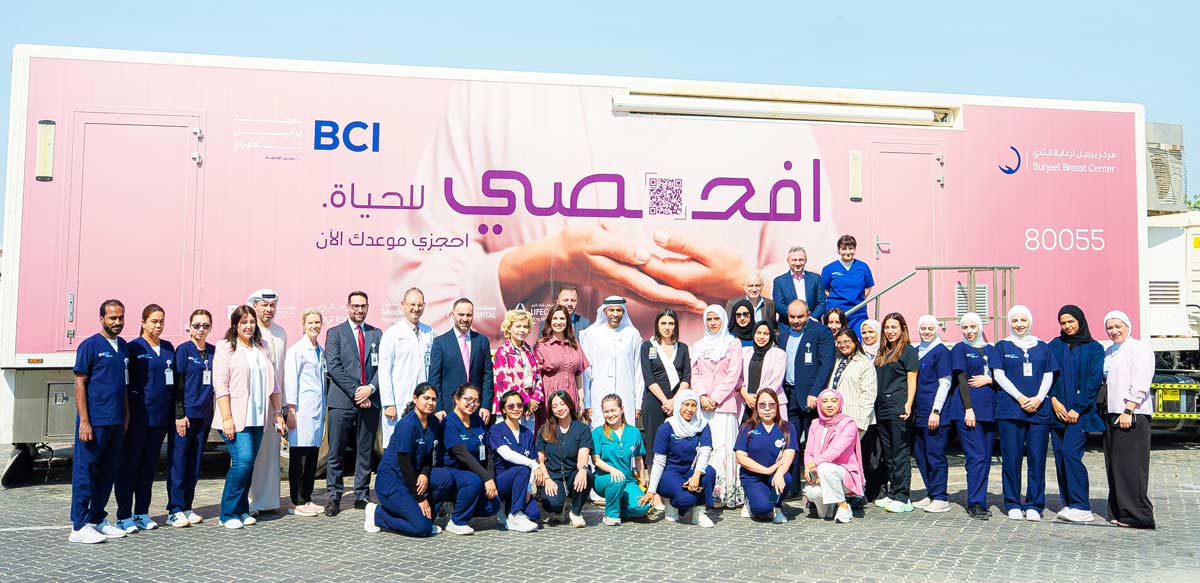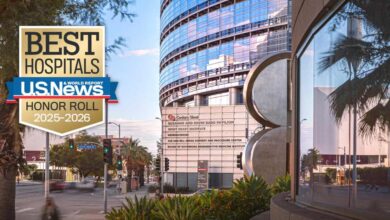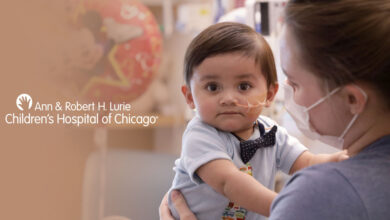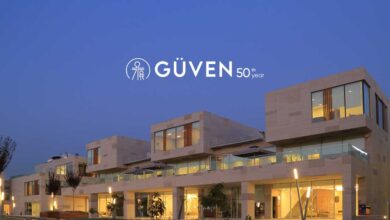Burjeel Cancer Institute: Transforming Cancer Care for the Region
Led by renowned Emirati oncologist Prof. Humaid Al Shamsi, whose academic distinction was recently recognized by the UAE President, Burjeel Cancer Institute (BCI) continues to raise the bar for comprehensive cancer care.
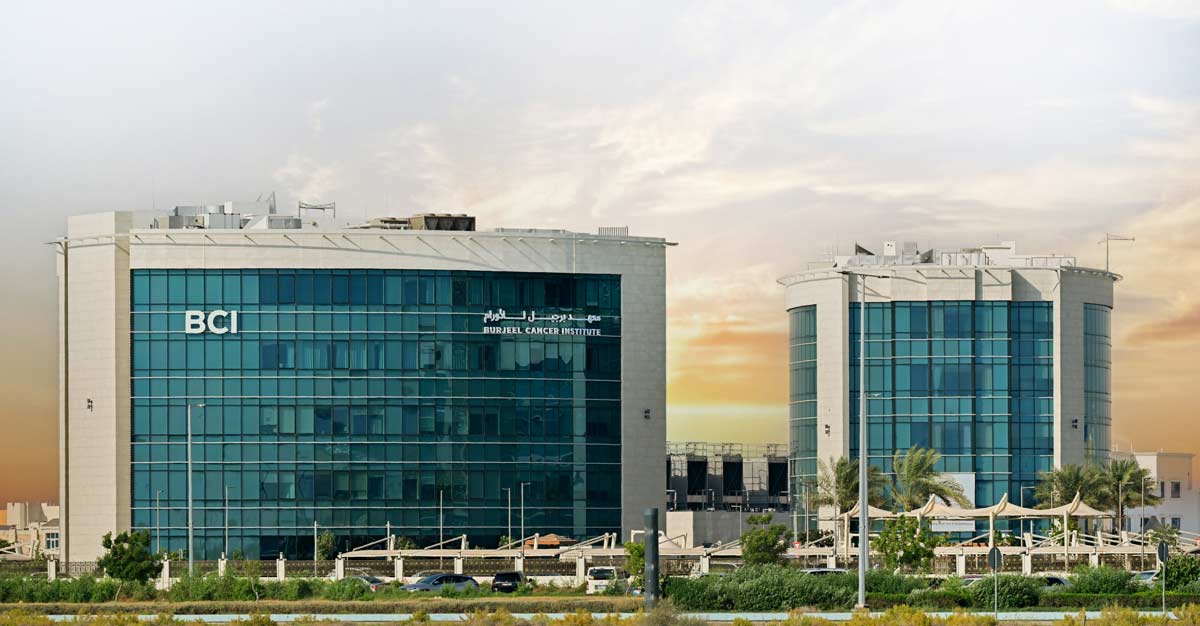
Burjeel Cancer Institute (BCI), the largest cancer care network in the GCC, is a hub of complex care where advanced, compassionate, research-driven, and multidisciplinary oncology services converge under one roof. Through its growing network, BCI delivers a care model that brings world-class care closer to home by uniting prevention, precision diagnostics, complex therapy, and survivorship. Located at Burjeel Holdings’ flagship facility Burjeel Medical City (BMC) in Abu Dhabi, BCI now serves patients in Abu Dhabi, Al Ain, Dubai, Sharjah, Al Dhafra, and Oman, aligning subspeciality multidisciplinary teams behind shared protocols so that patients in any emirate enter the same evidence-based pathway as those treated at the flagship.
Under the leadership of renowned Emirati Oncologist Prof. Humaid Al Shamsi, BCI’s impact is anchored in scale. The network cares for more than 5,000 oncology patients a year and delivers over 10,000 radiotherapy sessions annually, volumes that support rapid access, deeper subspecialization, and continuous outcome improvement. At its four-storied space in BMC, more than 70 multidisciplinary specialists coordinate clinics, imaging, infusion, radiation therapy, tumor boards, navigation, and survivorship services, reducing time from suspicion to treatment and ensuring continuity at every step.
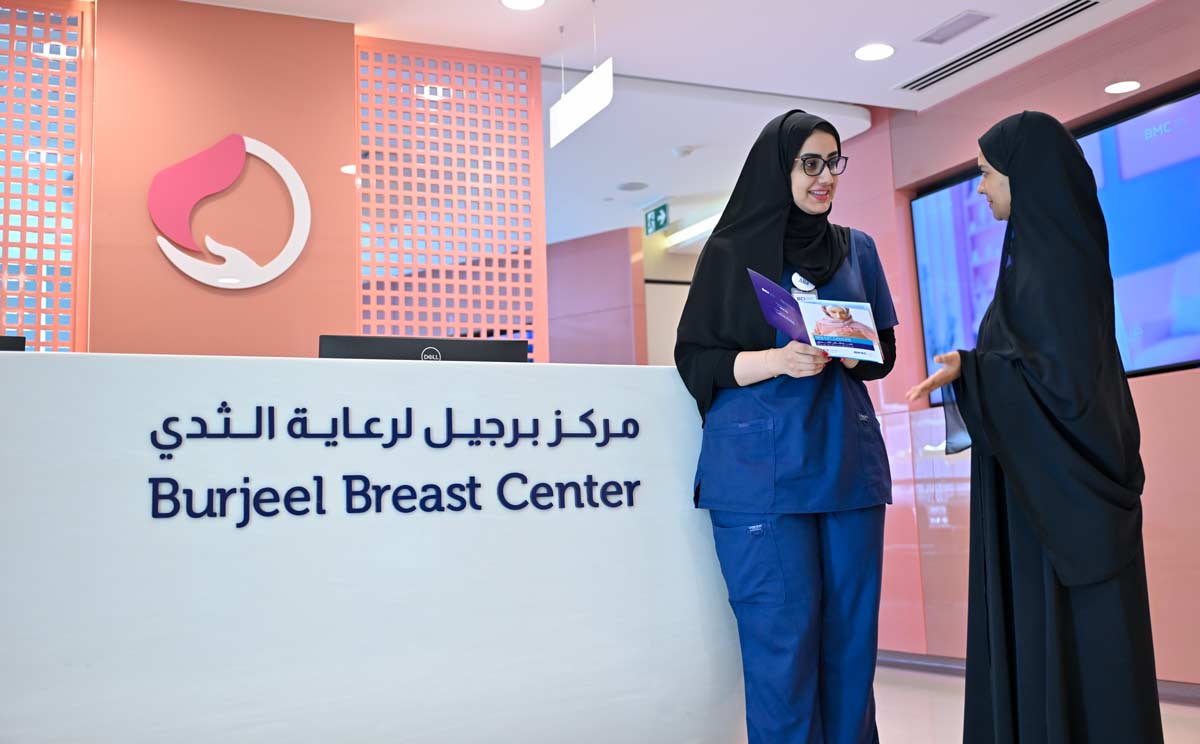
Vision powered by leadership
The institute’s growth reflects a clear enterprise vision. Envisioned by Dr. Shamsheer Vayalil, Founder and Chairman of Burjeel Holdings, BCI was established to democratize complex cancer care in the UAE and the wider region by investing in people, platforms, and programs that measurably improve outcomes where patients live. That vision is now evident in BCI’s cross-Emirate footprint and its new center in Muscat, which extends unified protocols, shared tumor boards, and seamless referrals to Oman. It reflects the GCC-wide commitment to raising oncology standards and access.
Speed, Precision, and Continuity of Care
BCI’s physical design mirrors a patient-centric model rather than departmental silos. Clinics sit steps from imaging and day-care infusion; radiation therapy is co-located with surgical and medical oncology; and tumor boards and patient navigation are embedded into daily practice, making care more accessible and coordinated. The result is a service that moves decisively from first suspicion to a treatment plan, minimizing repeat visits and delays that can undermine outcomes. This model is underpinned by a modern technology stack.
At the center of women’s cancer services is the Burjeel Breast Center, a women-led, one-stop destination launched in April 2025. It offers same-day appointments and same-day diagnosis, powered by HOLOGIC 3Dimensions digital breast tomosynthesis that improves lesion visibility, particularly in dense breast tissue, and feeds results directly into multidisciplinary planning.
Precision radiotherapy, robotic surgery, and advanced imaging
BCI’s radiation oncology program operates Elekta Versa HD systems delivering image-guided IMRT, VMAT, SRS, and SBRT with sub-millimeter accuracy. BCI is recognized as an Elekta Reference Site and holds Novalis Certified Radiosurgery status, embedding the team in a global peer network for protocol sharing and continuous improvement.
On the surgical front, the da Vinci Xi robotic platform supports minimally invasive procedures that demand precision and fine control, helping reduce recovery time and length of stay when surgery is part of multimodal care. Advanced imaging, including time-of-flight PET-CT and SPECT-CT, improves lesion conspicuity and staging confidence, enabling more accurate planning for curative and palliative pathways alike.
Among its surgical milestones, the BCI team recently performed GCC’s first Hepatic Artery Infusion Pump (HAIP) implantation. The technique delivers high-dose chemotherapy directly into the hepatic artery, the liver’s main blood supply, ensuring more effective doses with fewer side effects. It offers new hope to patients from across the region with colorectal liver metastases who were previously considered inoperable.
Genomics at the point of care
Diagnostics are accelerated by the OncoHelix Co-Lab, a state-of-the-art laboratory inside BMC that brings next-generation sequencing, droplet digital PCR, and total lab automation into the care pathway. Launched in partnership with Canada’s OncoHelix, the Co-Lab delivers high-quality molecular and immune profiling on-site so oncologists can act on reliable data without avoidable delays, supporting targeted therapy and immunotherapy decisions in real-time.
In parallel, BCI is evaluating multi-cancer early detection (MCED) blood tests available in the UAE so that any adoption complements established, evidence-based screening programs rather than replacing them.
For instance, the TruCheck test can detect over 70 solid tumors, excluding blood cancers. The institute aims to integrate new tools where they clearly add value and fit into standardized pathways overseen by tumor boards.
Advancing Excellence Through Education and Training
To nurture the next generation of oncology and hematology leaders, in 2025, BCI launched its inaugural accredited fellowship program in oncology, the first of its kind in the UAE, certified by the National Institute of Health Sciences (NIHS). This step aligns with its mission to position the UAE as a regional hub for innovation. This comprehensive program targets physicians seeking advanced subspecialty training in medical oncology, hematology, and integrated care, emphasizing precision medicine, immunotherapy, and survivorship. As part of the program, fellows will engage in hands-on clinical rotations across BCI’s network, including tumor boards, advanced radiotherapy, and genomic profiling via OncoHelix Co-Lab. The curriculum spans research methodologies, ethical trial conduct, and multidisciplinary case management, with dedicated modules on regional challenges like thalassemia and hereditary cancers.
Strategic academic partnerships with Harvard Medical School and Dana-Farber Cancer Institute provide global exposure, enabling fellows to access cutting-edge protocols and collaborative studies. Priority is given to Emirati and MEA professionals to foster local talent through expert mentorship.
Over three years, fellows will contribute to ongoing trials, publish findings, and lead community outreach, ensuring evidence-based care reaches underserved populations.
This initiative not only builds clinical acumen but also empowers participants to drive sustainable improvements in cancer outcomes across the GCC.
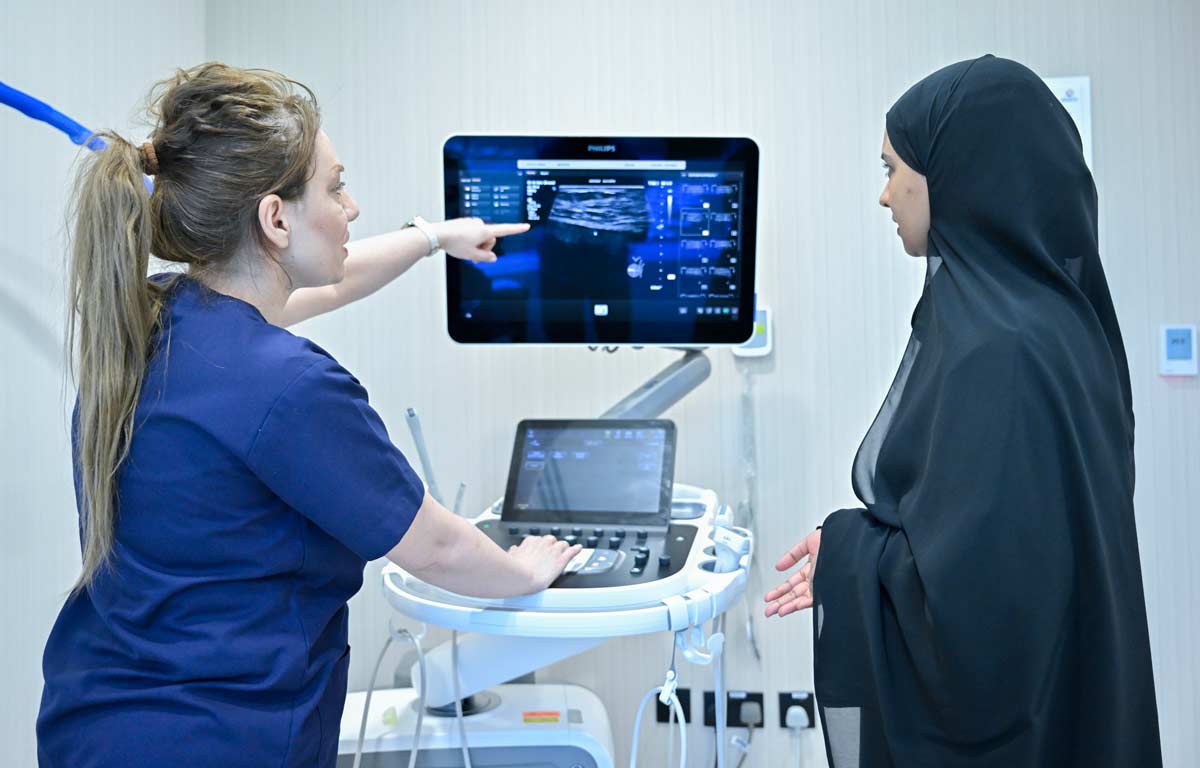
Pioneering Progress Through Clinical Trials
BCI leads oncology innovation with 7 active clinical trials across breast, colorectal, lung, hepatic, and gynecological cancers, alongside the groundbreaking Phase 3 ENERGIZE and ENERGIZE-T trials at Burjeel Medical City for thalassemia. These FDA-registered, multicenter studies evaluate Mitapivat, a pyruvate kinase activator, to boost hemoglobin in non-transfusion-dependent patients and cut transfusions by ≥50% in transfusion-dependent cases, reducing iron overload risks. Integrated within BCI’s network, Phase I–III oncology studies, overseen by tumor boards, emphasize precision therapies and immunotherapy, leveraging OncoHelix genomics and advanced imaging. Over the past year, BCI enrolled over 150 patients in international protocols with Harvard Medical School, Dana-Farber Cancer Institute and AbbVie, accelerating access to novel agents. This framework enhances outcomes, mentors Emirati fellows, and positions the UAE as an oncology and hematology hub. Future plans include basket trials and AI trial matching for equitable access.
Mobile Mammogram unit for breast cancer screening
Beyond tertiary treatment, BCI invests in early detection through community education. During breast cancer awareness activities in October, hospital-based mammography is paired with mobile outreach to take screening to workplaces and neighborhoods, ultimately linking to the Breast Center’s rapid-diagnostic pathway. The Mobile Mammogram Truck travels to communities across the UAE throughout the year, offering complimentary screenings and educational sessions. The result is a smoother on-ramp to definitive care for women who might otherwise delay screening. Mobile screenings will continue throughout the year.
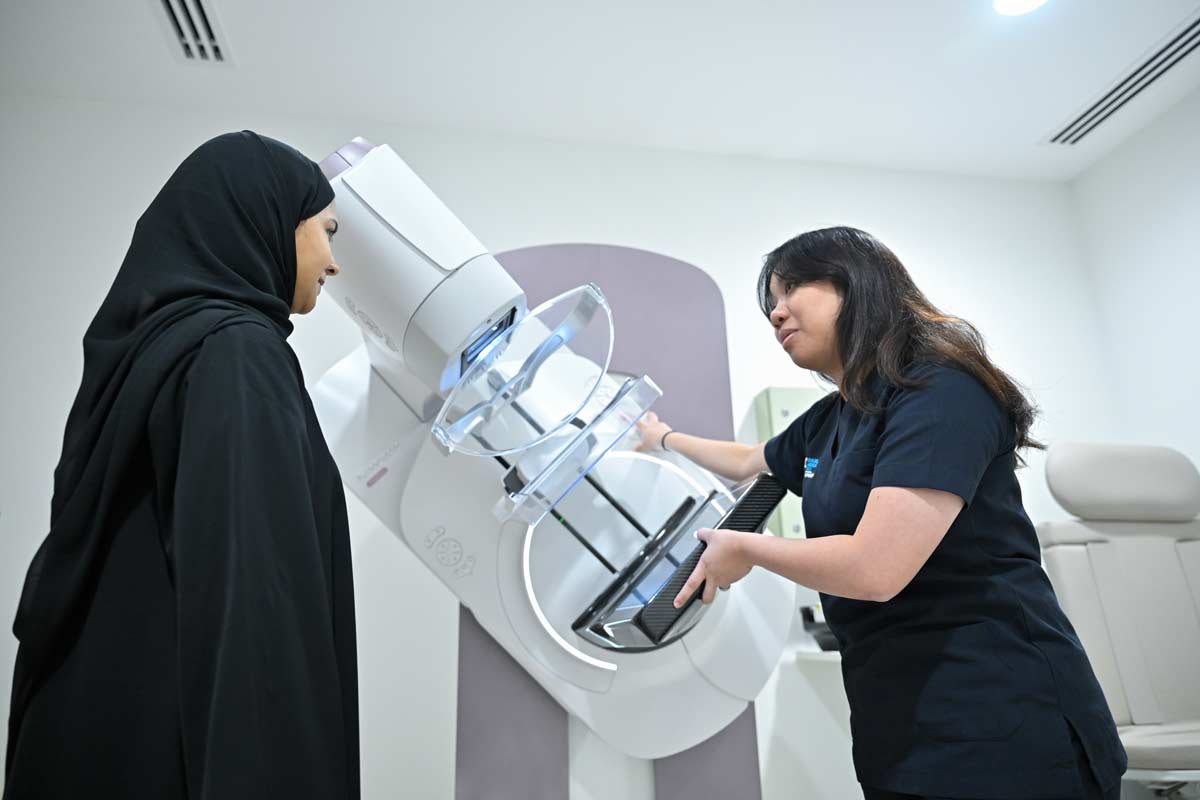
Recognized leadership and a mandate to grow
The institute’s CEO, Prof. Humaid Al Shamsi, was recently received by His Highness Sheikh Mohamed bin Zayed Al Nahyan, a gesture that showed the national priority assigned to cancer care and academic excellence. The moment also signaled confidence in BCI’s mission to deliver comprehensive, compassionate, and cutting-edge cancer care that improves outcomes for every patient.
Looking ahead, BCI is expanding clinical research and data partnerships, so that international evidence translates more rapidly into local practice. It will further scale radiation oncology capacity across the network, deepen subspecialty surgical programs in hepatobiliary, thoracic, and pelvic oncology; and formalize education pathways for physicians, nurses, and allied professionals. Each step reinforces a simple proposition: patients should have access to the right care, at the right time, delivered by coordinated teams, without needing to leave their communities.











